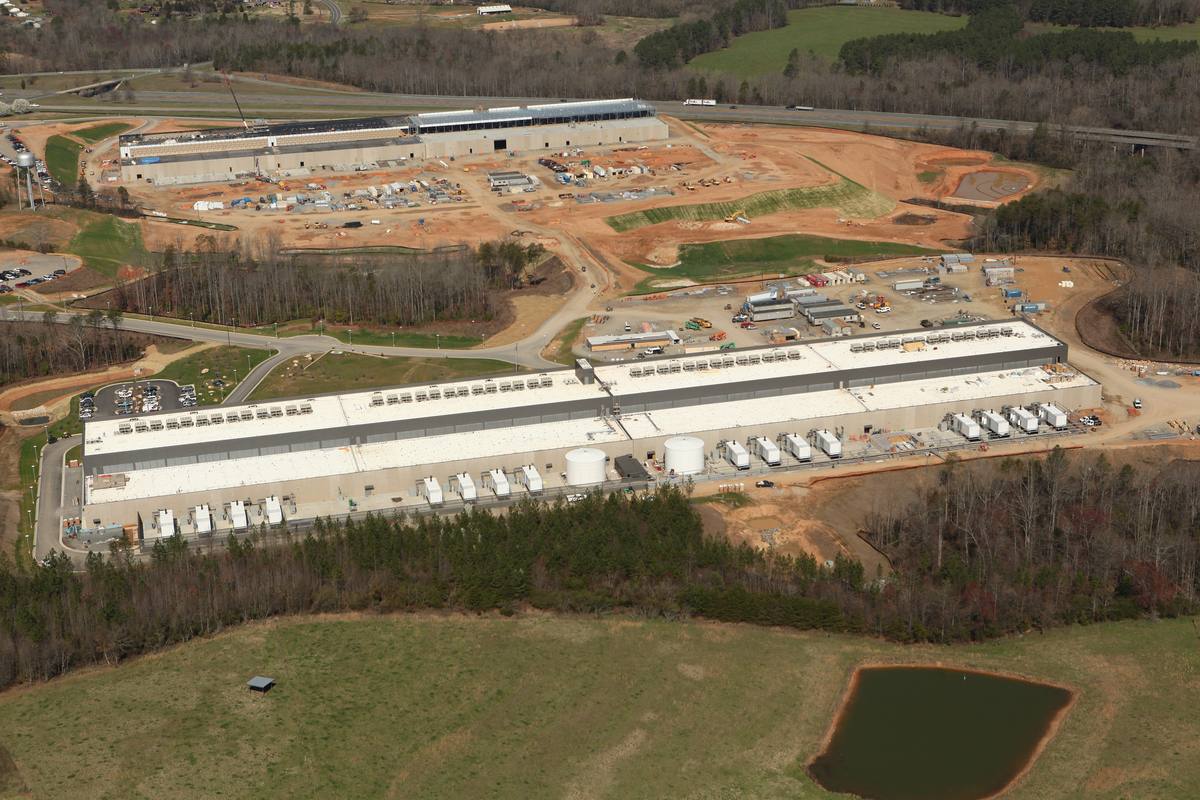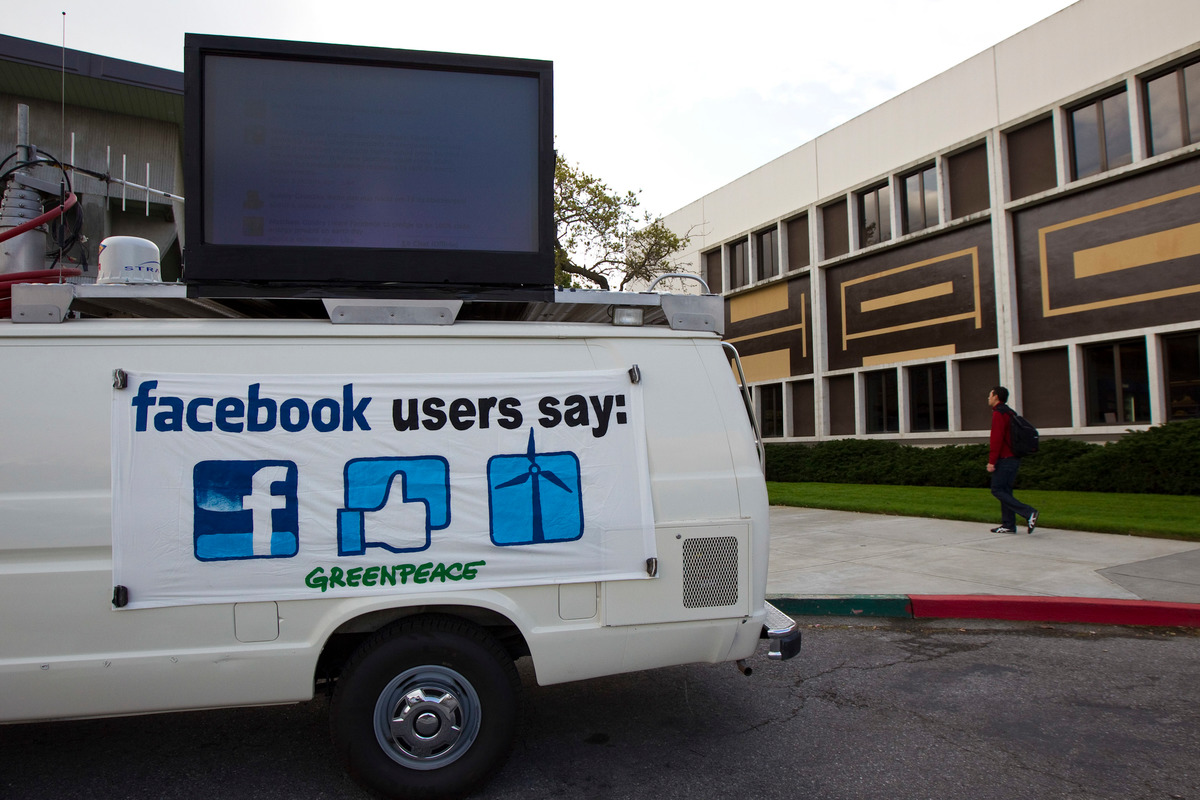
An aerial view of the Facebook Data Center in Forest City. The 150-acre facility is the second Facebook-built data center in the United States © Greenpeace
We love being able to share stories and talk with our millions of supporters around the world on social media. But recent reports of Facebook’s mishandling of users’ personal data and how it’s being used by powerful people to manipulate elections via Cambridge Analytica, are incredibly troubling. It is a fundamental threat to the green and peaceful future we want to build.
This issue goes beyond a single scandal.
The fundamental business model of social media companies like Facebook poses some serious concerns. Their goal is to collect as much personal information on individuals as possible and then use this information to sell highly targeted advertising to companies. Worldwide there is very little understanding of what exactly they collected, little regulation and little known about the consequences on democracy.
We all understand that social media records the basic information, like our name, our age, our messages and the things we ‘like’. We generally understand that Facebook takes a ‘big data’ approach, that means collecting and saving everything they can; every click, every video and every interaction with your friends.
But it goes even further. Facebook can track the other websites you view, your location through third party apps, and then share your data to anyone from advertisers to political parties. Just a couple of weeks ago it was exposed that Facebook records data on outgoing calls and texts on Android phones with Facebook apps installed. With each revelation, it feels that Facebook motto, harking back to it’s days as a startup to “move fast and break things”, is trampling on some of the ideas we hold as crucial to a fair and informed public sphere.
This level of data collection represents the concentration of enormous power in the hands of a single corporation. And crucially now, the Cambridge Analytica scandal has highlighted how this power can be used by a small group of people with an agenda to foster polarisation, radicalisation and undermine democratic elections.

Greenpeace activists show up at the Facebook headquarters with a van roof mounted monitor showing Facebook posts asking the company to move to renewable energy © Kim White / Greenpeace
Cambridge Analytica used data – taken without people’s consent – to manipulate political discourse in favour of right wing, nationalist reactionaries. These practises abuse people privacy and take power away from citizens.
Platforms such as Facebook are a critical part of our society. They need to work to enhance democracy, not manipulate it, which is why we believe regulation of Facebook and enhancing data privacy is long overdue.
Greenpeace, and the social movements we are part of, depend on news media and social media to share our stories and inspire action. We use data and open access to unite people, to call people to action and challenge those power systems.
Greenpeace uses Facebook and other social media to connect with people around the world who want to help create a better world. The problem is with the system, which is why we don’t want to do an Elon Musk and delete all our Facebook pages. For years, we’ve used it to build community and share ways to take action on urgent issues facing our planet and its people. It’s become a crucial tool for us and many of our allies to organise, and create change in the world.
People’s privacy matters, and Facebook can and should be doing better.
Those in charge of Facebook must be held accountable for its irresponsible practices. On top of that, governments across the world have a duty to protect our data.
If the rules underlying that virtual space are rigged in favour of the rich and powerful, we are risking free, and informed debate, and the privacy of people around the world. We believe that so much power should not rest in so few hands, nor that data and privacy be so recklessly treated.
If you agree, then take action with Avaaz here.
Tristan Tremschnig is the manager of Greenpeace International’s Global Communications Hub, based in Asia Pacific
Note to readers: You might be wondering what Greenpeace International does to safeguard your data.
The relationship between Greenpeace and our supporters is one of trust – trust we take seriously. We believe personal privacy is a right and our goal is to respect this in everything we do. More than anything, we want to give you control over what happens to your data. We don’t ever sell your data. And we always respect your wishes in terms of how we communicate with you.
For more information, you can read our website’s privacy policy, or get in touch with us in the comments.
